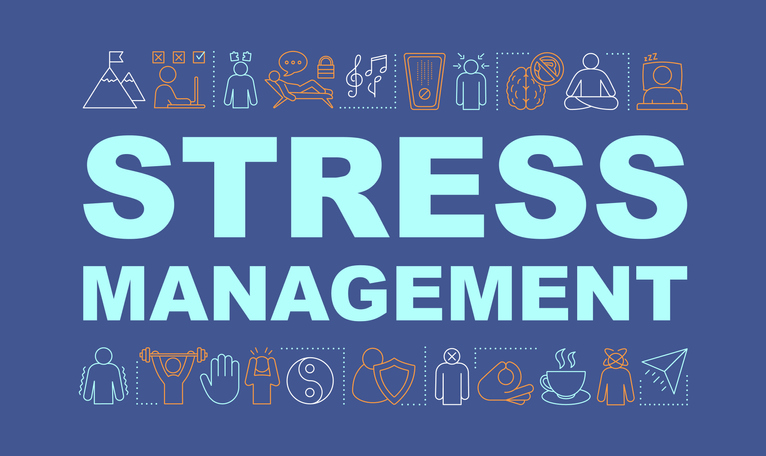Wellness
What Is Stress Management?

Stress management is the practice of limiting stress and reducing its effects on the mind and body. The goal of stress management is not to eliminate stress entirely. Small amounts of positive stress, or eustress, can be beneficial. Instead, the goal of stress management is to reduce negative stress, or distress, and to develop ways to cope with unavoidable stressors.
Benefits of stress management
When dealing with chronic pain, one of the goals of stress management is to reduce pain. Stress and pain are intertwined, so stress management may be beneficial for those in chronic pain. Implementing a stress management plan can help individuals develop effective coping skills, decrease stress-related symptoms, and reduce pain.
Two main components of stress management
Stress management consists of two main components — the first component involves recognizing and identifying stressors; the second component involves coping techniques.
Recognizing and identifying stressors
Recognizing stress and identifying stressors (the things that cause stress) is the first component of stress management. Recognizing stress involves paying attention to physical and emotional symptoms of stress, such as irritability, headaches, increased heart rate, or an upset stomach. Identifying situations or events that cause the symptoms and avoiding them when possible can reduce stress.
Coping techniques
Avoiding all stressors in life is impossible. The second component of stress management is learning tools to cope with unavoidable stressors. A few strategies, tools and techniques that can make it easier to deal with stress include the following:
- Focus on what can be controlled. Sometimes a situation cannot be changed, but the reaction to the situation can be altered.
- Maintain a healthy lifestyle. Make healthy eating a priority, find forms of physical activity that do not cause or worsen pain, and be sure to get enough sleep.
- Practice deep breathing, yoga, tai chi or meditation.
- Take time for enjoyable and relaxing activities, such as taking a bath or watching a funny movie.
- Set limits. Say no to invites or requests that may be overwhelming.
- Spend time with friends and family. Loved ones can be good listeners or provide distraction from stress or pain.
- Avoid relying on unhealthy behaviors, such as overeating, smoking, drinking alcohol, or using drugs for stress relief.
- Seek help when needed. Mental health professionals can assist with stress management.
While stress will never completely disappear, stress management can help individuals cope with stress and reduce its negative effects.


















